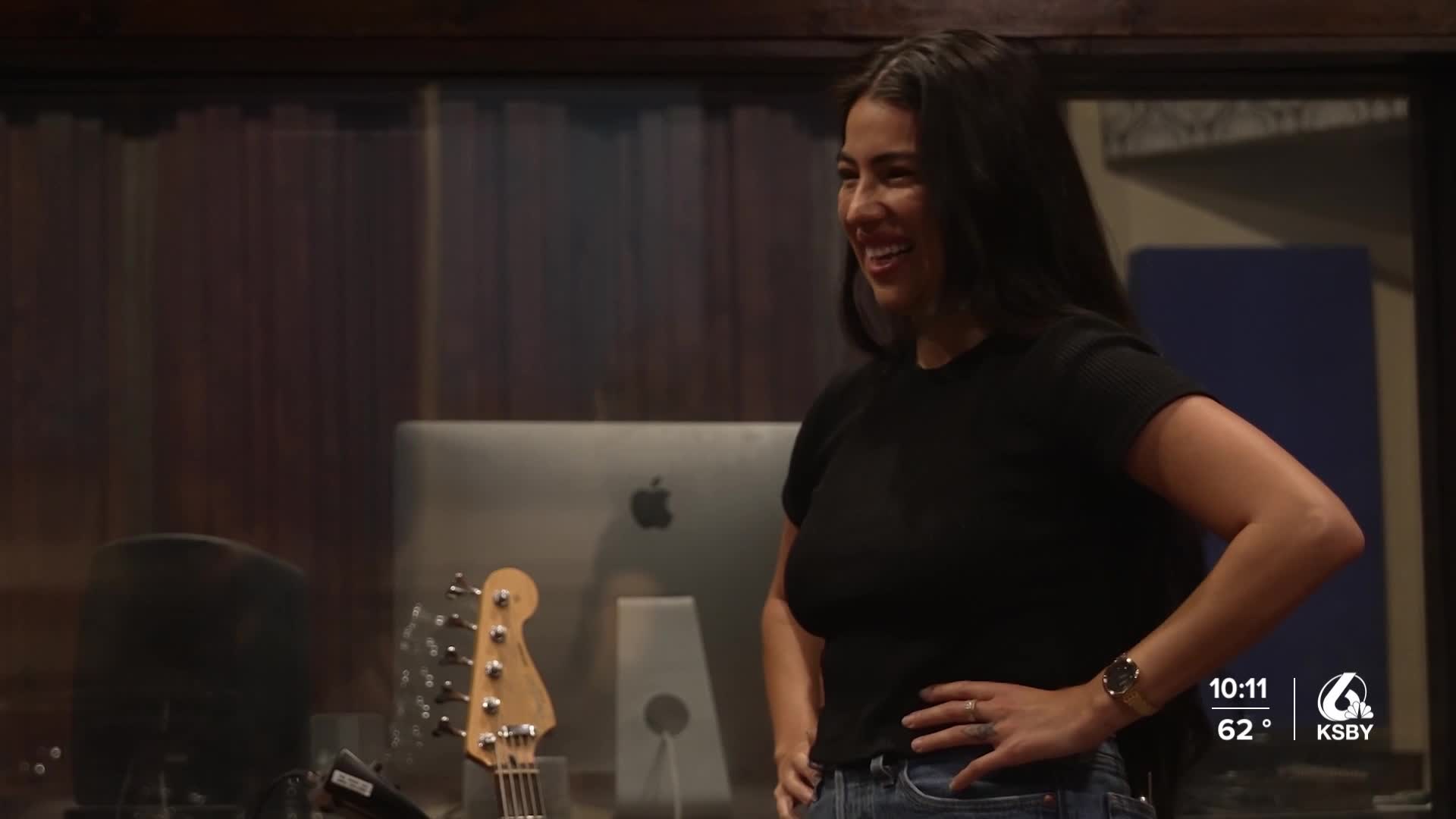Veronica Cortes, who performs under the name Mosa, is carrying more than just her voice onto the stage; she's redefining what it means to carry on a cultural legacy.
Her introduction to music began in her family’s living room.
“I really owe all of this to my dad,” Cortes said. “He was born in Michoacan, Mexico, and every December, he took us to [Michoacan to] enjoy our family from over there. That’s where I learned Spanish. That’s where I learned to love music so much. That’s where I learned to love the food so much.”

On her mother’s side, she found something different, but just as impactful.
“She was born and raised in Santa Maria, California,” Cortes explained. “Her side of the family, they have like a Tex-Mex kind of vibe, kind of like the Selena family vibe. And my grandma, her mother, rest in peace, she actually introduced me to Selena for the first time on one trip to Texas.”
That trip left a mark. Her grandmother brought back a bag from Selena’s museum in Corpus Christi, and Cortes remembers the moment as a collision of worlds. It was Selena’s influence that inspired her to take performing seriously.

“Legend has it that when I was about five years old, I would get on the coffee table and start singing with the flowers,” she laughed. “But by the time I was eight years old, that’s when I really knew I loved it, and I just wanted to do it forever.”
Her first full Spanish song came thanks to her godmother, who taught her an Alicia Villareal track, “Te Quedo Grande La Yegua.”
“That was the first song that I ever learned in Spanish, like full on with all the words,” Cortes recalled. “I don’t think an eight-year-old should have been singing that song, but I did. And it was just so cool to see everyone’s reaction, everyone’s smiles, everyone asking for the next song.”
Navigating between English and Spanish has always been part of her story, sometimes with ease, sometimes with a little hesitation.
“I feel very natural singing in Spanish,” she said. “But the hardest part is when I go into a room where everyone’s Spanish-speaking as their first language. That’s when I get nervous, and then I got to kind of fake it till I make it, and then I just use my charm. That’s really how I get through it.”

Instead of viewing that as a limitation, she reframes it as a strength.
“I think it shows that it’s okay, that we get to embrace both sides and we don’t have to be embarrassed,” she said. “Just embracing exactly who we are, which sometimes is a lot of different things.”
Her career formally began with cover songs, especially of Selena.
“Once I signed with this label, it was really important to me to get certain things out of my system before moving on to making my own music,” Cortes explained. “When I did the Tribute to Selena album, that’s what that was for me, so that I can listen to it and know that I did that in my lifetime."
That tribute led her into mariachi, the genre most deeply tied to her father.
“The recent effort on this tribute album, I really, really loved,” she said. “That’s a full mariachi album, and that one was huge for me because that one really connected me to my dad as well. Vicente Fernández was always playing, so that was a big one for me too."
Today, Mosa’s sound stretches across styles. From pop ballads to mariachi rancheras and acoustic piano.
“They’re all pretty different, but they’re there,” she said. “Definitely, in my career, I love the piano, like just my voice on the piano. That’s definitely going to be in there somewhere.”
She’s also conscious of her place as a woman in a male-dominated field.
“Traditionally, it is a male-dominated genre,” Cortes said. “But it’s been so cool in the past couple of years, I see that line blurring a lot more. There’s so many women that are working together... Our presence is getting a lot stronger. I can’t say that we dominate it yet, but we’re coming."
That sentiment extends to how she presents herself visually. In one music video, she chose to wear pants with her traditional charro outfit, a decision she describes as both personal and symbolic.
“It was kind of just my personal preference, but also me wanting to modernize and blur the lines between the gender stereotypes, even in our costume,” she said. “When I put on a charro outfit, I feel like a whole different person. I feel more me than ever. I feel like I’m representing my dad, all of his hard work, the rest of our family and all of Mexico.”
For Cortes, the responsibility now is not only to honor tradition but also to connect with younger audiences.
“It’s really important to continue the traditional sounds,” she said. “But I also feel like in order to connect with younger generations, we do have to include certain sounds that they’re familiar with.”
At the heart of it all, Mosa sees herself as a voice for her culture.
“I’m just really, really excited that I got to be a voice and a representation for our Hispanic culture,” she said. “It’s seriously an honor.”





